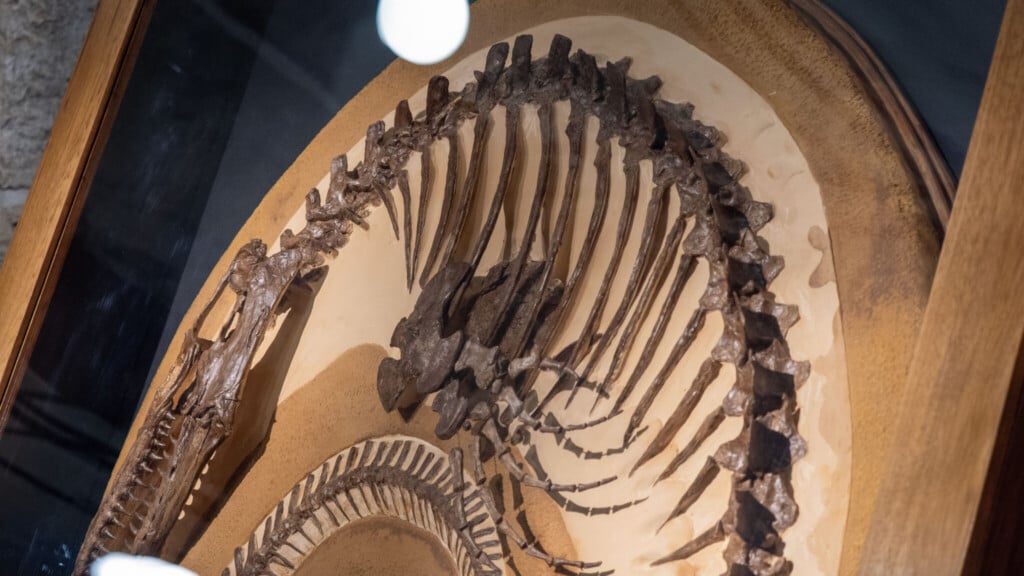Zola Jesus’ latest album embraces the untamed and the unknown


Since 2009, Wisconsin native and Seattle-via-Los Angeles resident Nika Roza Danilova has performed as Zola Jesus, creating layered, inky goth-pop that haunts a listener long after the record stops.
The latest Zola Jesus album — last October’s Taiga — finds the 25-year-old carving a fresh path for herself using the tools that she has spent years sharpening. Taiga‘s stark, intense songs — inspired by her rural childhood home and the remote surroundings of Vashon Island, Washington — establish Danilova as one of music’s most promising talents. She spoke with me by telephone last week.
The Pitch: I love the title track from Taiga, in which your voice, super-strong over the effects, poses a powerful question: Do you ever wish you could go back to it all? What led you there?
Zola Jesus: Just general disillusion with society. Lately, I’ve been thinking a lot about where we’ve come as a community and as a people, and I sometimes feel like we’ve gotten to the point where we’ve over-evolved, in a way. There’s something about the way we lived in the past, when we didn’t have the answers and the technology, and something about that feels so freeing. I think about that a lot.
Past interviews have talked about your ambition, and you discuss it openly on the song “Hunger.” Often ambition and success are grouped together. How do you feel about one as it relates to the other?
I think people, when they hear the word ambition, they immediately think about the capitalist meaning of it. But to me, it’s more about having the ambition to fulfill your potential as a human being. You have a finite amount of time on this earth to establish yourself, so that when you die, there’s some sort of worth left, something as to why you’re here. That’s why some people have children. But my legacy is going to be an artistic one. As an artist, you’re asking yourself how you’re making your time valuable, how you’re going to push culture forward in some way, and that becomes very stressful. I get very overwhelmed with that responsibility, and that’s what “Hunger” is about: wanting to fulfill your potential when you’re alive.
You’re married. How do you balance career and relationship?
Marriage shouldn’t be hard. Everything about it should be easy. When you make an agreement with someone, you’re both fighting the fight in the world and making an agreement to fight it together. So any struggles that happen, they’re never hard to figure out. I’ve decided to bring my husband on tour, and that’s important to me. I don’t really think about balancing it at all. I got married because it would make my life easier. Having my husband makes me feel more buoyant, and vice versa.
Tell me about the experience of living and writing Taiga on Vashon Island. How did you decide that was the right spot for you to retreat, and what kind of influence did it have on your writing?
Basically, I just opened the map and found a place that looked really isolated and decided to go there. Living in L.A. is the opposite of that. It’s inundated with Hollywood and pop culture in general. I was becoming really weighed down by the society that we’ve built for ourselves, and I made an effort to escape that. It [living on Vashon Island] allowed me to be one with the world again, which is hard when you’re so wrapped up in the infrastructure that we’ve created.
When I moved from Wisconsin to L.A., I was so excited to finally get out and discover the real world and immerse myself in that. But going to L.A., I felt like a fish out of water. You grow up in a certain way that feels normal because the people around you have the same struggles. But once you go to L.A., you’re part of a bigger city, and it makes you realize how unique your past was, and that’s what makes you different from other people. In that way, it made me appreciate how I grew up. Growing up in northern Wisconsin, I felt constrained and oppressed, but it’s also very liberating — just you and your imagination up there in the middle of nowhere. And that’s something that incited a lot of creativity that I wanted to rediscover. That’s why Vashon Island felt right.
This album feels really stripped down compared with your previous records. It feels almost naked. Were you at all nervous to emphasize so much of your voice without as many effects?
Totally. [Laughs.] That’s why I did it. I feel like it’s important that, no matter what you’re doing, you feel uncomfortable doing it. I got to the point where what I was doing felt very comfortable. The effects that I have and the way that I wrote — there was a distance there, and it felt safe. And Taiga — it’s cleaner, the vocals are up-front, the songs are more straightforward. Everything about that is what I’ve always been uncomfortable doing.




